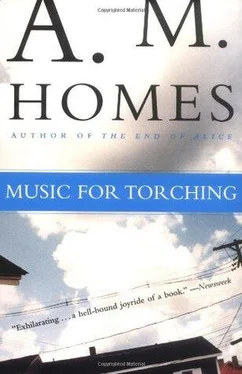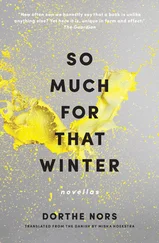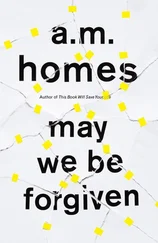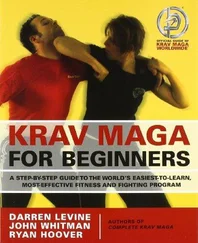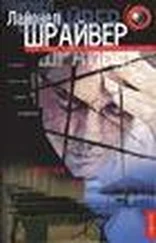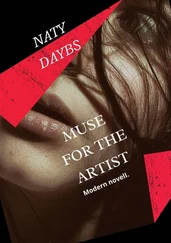"But you're pretty good," Paul says.
"I've been practicing," Daniel says.
"We play every day," Willy says.
Mrs. Meaders pulls into the lot, tooting the horn even though the boys are right there.
Daniel taps on the window. "Could we give my father a ride home? He's sick."
"Of course," she says. The boys climb in the back, and Paul gets in the front. He is afraid to talk, afraid his foul breath will flood the car. "I came home early," he says, speaking out the window, away from everyone. "There were no taxis at the station. I thought I could walk. And then the weather."
"Where am I taking you?" she asks. "Your house or the Nielsons'?"
"Home. Elaine is home. I threw up," Paul says, frightened like a child.
"Are you feeling better now?"
"Better except for the car, the car is making me nauseated."
"Should I go faster or slower?" she asks.
"Faster." As fast as you can, he wants to say.
The rain starts. Fat splashes land on the windshield, drops the size of dinner plates. Thunder. Lightning. Wild trees. And it's only going to get worse.
Mrs. Meaders stops in front of the house; a truck is blocking the driveway.
"Thanks for the lift," he says, opening the door, making a run for it.
Men in yellow coveralls, with goggles and masks, swarm through the house like bees. Paul counts six of them. Their outfits are intimidatingly hard-core; they're dressed as though they're cleaning up a toxic-waste site, as though the house is truly contaminated. Paul wants to tell them to lighten up-it's not that bad. He wants to say, Hey, we live here, we've lived here for years, we're okay.
"You are such an asshole," Elaine says as soon as she sees him. "Where were you? What happened? You called and then you hung up. You can't do that to me-never, ever, again. You scared the hell out of me."
He heads for the stairs, in a hurry to check his wound.
"And," she says, "as soon as you hung up, you had a phone call." Paul imagines the date, checking on him, his health, his well-being, his ill erection.
"Mr. Warburton's secretary called. She said your garbage is fine and she hopes you get well soon."
Paul pictures the trash can on top of his desk, a big DO NOT DISTURB sign taped onto it, written in desperate red Magic Marker.
"What's going on? Did you get fired?"
"They're washing the walls," Paul says, watching the men in yellow. "Why are they washing the walls, Elaine?"
He goes upstairs into the bathroom and pulls down his pants. It is a mess, an oozing gelatinous mess: the dark ink of the ivy, the blood, the shine of the ointment, all conspiring to give the impression that something serious is seeping out of him, something organic and intestinal.
He starts wiping at it, frantically.
Elaine comes in. "Oh, God," she says. "What happened?" Her hand covers her mouth. "What is it?" she asks, speaking through her fingers. "Were you mauled by an animal?"
"Tattoo," he says.
Her hand drops away from her lips. "Erase it," she says. "Erase it right now."
"I don't think I can."
"Is it permanent?" She stoops to look at it a little more carefully.
"I assume so," Paul says, realizing that he didn't think to ask. There is a pause. "Do we have any bandages? Any antibiotic ointment?"
Elaine opens the medicine cabinet. She gets down on her knees in front of him with a bottle of Bactine, a tube of Neosporin, and some nonstick Telfa pads. "Don't move," she says, dabbing at him. Her annoyance is a relief, her rough handling exciting. He gets a little hard-on. "Don't even," she says.
Bactine stings.
"Elaine," he says, "it's like I've lost my mind. I feel so strange." He stops. "I'm sick," he says. "I ate a shrimp-salad sandwich. I've been throwing up all afternoon, four times, right in the middle of the street. No one did anything," he says. "I'm scared," he says. "I'm so scared."
"You're fine," she says, coating the area with ointment, putting a fresh bandage over the wound. "You're probably dehydrated; that can make you feel funny. I'll get you some tea." She picks herself up off the floor.
"Could I have juice instead of the tea?"
"Not if you've been throwing up."
"I have to lie down," he says, moving to the bed.
"I just don't understand," she says. "When did you have time to do it?"
"During lunch," he says. "I ate quickly."
"Maybe that's why you're sick."
"Dunno. Elaine," he calls after her. "It's fine about the walls. Maybe once they're washed they won't need to be painted, maybe we can save some money there."
"I just want everything to be all right for Sammy," she says.
"I know."
He lies down on the bed. There is an enormous crash of thunder. He pulls up the covers, and the heavens open. They pour. Paul lies back, and drops of rain begin to come through the little hole in the roof, they come through the ceiling and land in the middle of his forehead, tap-tap-tapping against his thoughts.
When Paul wakes up, Jennifer, Liz's daughter, is there by his side, the voice of reason.
"Are you alive?" she asks.
"I don't know. Am I?"
"You were breathing strangely."
"Yeah, like how?"
"Panting," she says.
"I must have been dreaming."
"Are you sick?" She presses her punkish seventeen-year-old Florence Nightingale hand against his forehead.
"Demented," he says, propping himself up.
"Do you want a cold washcloth?"
He shakes his head no. "It's like I've been run over," he says. "I threw up. Four times in broad daylight, and no one noticed."
"Chunky or smooth?"
"Extra-chunky," he says. "Shrimp salad."
"Watery," she says.
"Not really," he says.
"Watery isn't a question, it's a comment," Jennifer says. "Watery means, like, gross."
As Jennifer talks, Paul hears a slight slurring, a little lisp that he never noticed before. He looks at her. She starts to say some- thing-a small shiny spot flashes on her tongue.
"Jennifer," he says, "what happened to your tongue? You sound strange. Did something happen to your tongue?"
"I had it popped," she says.
"Popped?"
"Yeah, pierced. I had a stud put in."
"Oh," Paul cries out. "Oh."
"What's the big deal?" Jennifer says. "It's not like I haven't done it before." "I'm going to be sick," Paul says. He gags and sputters and spits into a Kleenex. The idea of pain is making Paul sick. "I feel sick. I feel so sick."
"Do you want some ginger ale?"
She is his Jennifer, his hope, his promise. She is what sold him on this house, this life, a dozen years ago. Jennifer at five, dressed as a clownish Raggedy Ann, playing on the grass; Jennifer dolled up, her cheeks painted with wide circles of zinc oxide, two large rounds of her mother's red lipstick dotting the middles, making twin targets on her cheeks, somehow made him think that life here would be good. He thinks of Jennifer, solid, reliable, resilient, their beloved baby-sitter. And now, Jennifer at seventeen, about to graduate from high school and venture forth. Jennifer with her body pierced, punctuated with the grammar of her generation.
Читать дальше
